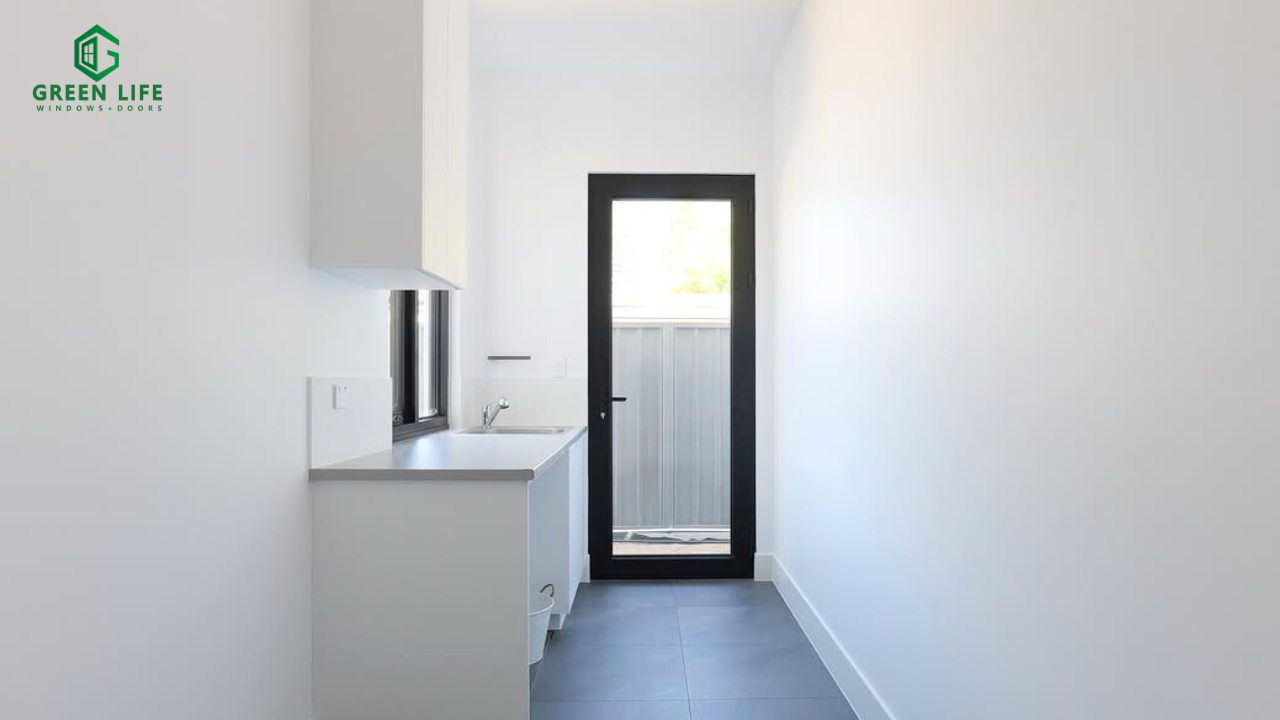Why Awning Windows Are Perfect for High-Rainfall Areas

Choosing the right windows for your home is essential, especially if you live in a high-rainfall area. The wrong window design can lead to water leaks, drafts, and reduced energy efficiency, making your home uncomfortable and costly to maintain. That’s why awning windows are one of the best choices for wet climates.
As a trusted window manufacturer, we understand the importance of durable, weather-resistant window systems. Awning windows, with their top-hinged design, provide excellent rain protection, ventilation, and energy efficiency, making them an ideal solution for homes in areas with frequent rainfall.
This guide will explore why awning windows are the best choice for high-rainfall regions and how they can improve your home’s functionality and comfort.
1. Superior Rain Protection
One of the main reasons awning windows are ideal for wet climates is their unique outward-opening design.
• Unlike sliding windows or bifold windows, which can allow rain to enter when open, awning windows create a natural barrier against rainfall.
• Their top-hinged construction allows water to run off the exterior surface rather than seeping inside.
• Even if left open during light or moderate rain, they prevent water from entering, ensuring continuous ventilation without water damage.
For homeowners in rain-prone areas, this feature means less worry about leaks and better indoor comfort all year round.
2. Enhanced Ventilation Without Compromising Protection

Proper airflow is essential in humid and wet climates, as stagnant air can lead to mould, mildew, and condensation issues. Awning windows are designed to maximise ventilation while keeping rain out.
• Their outward-opening mechanism directs fresh air into the home, even during rainy weather.
• This design helps improve indoor air circulation, reducing moisture buildup and maintaining a healthier living environment.
• Compared to glass sliding doors or fixed windows, awning windows allow controlled airflow without exposing interiors to the elements.
For homes in areas with tropical storms or frequent rain, awning windows provide natural cooling and ventilation while ensuring interior dryness.
3. Energy Efficiency and Weather Resistance
Windows play a critical role in insulation and energy efficiency. Poorly designed windows can lead to air leaks and higher energy bills, especially in areas with fluctuating temperatures.
• Awning windows often come with high-performance weather seals, reducing drafts and air leakage.
• When paired with double glazing, they enhance insulation, keeping homes warmer in winter and cooler in summer.
• Their tight-closing mechanism improves thermal efficiency, reducing the need for excessive heating or cooling.
For homeowners looking to lower their energy costs, choosing awning windows with aluminium extrusions and double-glaze windows can make a significant difference in comfort and efficiency.
4. Durability and Strength in Harsh Weather Conditions
High-rainfall areas often experience strong winds, storms, and humidity, making window durability a crucial factor.
• Awning windows are commonly constructed with aluminium window frames, which are resistant to corrosion, rust, and warping.
• High-quality architectural window systems are designed to withstand harsh climates, ensuring long-term durability.
• Unlike wooden frames, which may rot or swell due to moisture exposure, aluminium windows provide a low-maintenance and long-lasting solution.
For homes in coastal regions or areas with heavy rainfall, awning windows offer reliable performance and structural integrity year after year.
5. Versatile Placement for Privacy and Functionality
Another advantage of awning windows is their versatile installation options.
• They can be placed higher on walls, ensuring natural light and ventilation while maintaining privacy.
• This makes them ideal for bathrooms, kitchens, and basements, where airflow is essential, but security and discretion are also priorities.
• They also work well in combination with larger glass doors or aluminium windows, allowing for customised window configurations.
For homeowners who want functional, aesthetically pleasing, and private window solutions, awning windows are an excellent choice.
6. Added Security and Safety Features

Security is a key concern when choosing windows, especially for ground-floor rooms and accessible areas. Awning windows offer enhanced protection compared to other window styles.
• Their narrow opening angle makes them difficult to force open from the outside.
• Many models include reinforced locking mechanisms, improving home security.
• Unlike sliding or bifold windows, which can be pried open, awning windows provide an extra layer of protection against break-ins.
For families prioritising safety without compromising ventilation, awning windows are a secure and practical option.
Conclusion
If you live in an area with frequent rainfall, choosing the right window type is essential for comfort, efficiency, and protection. Awning windows offer superior rain resistance, ventilation, durability, and energy efficiency, making them a practical and stylish option for modern homes.
By investing in high-quality awning windows from a trusted window manufacturer, you can enjoy long-term performance, lower energy costs, and improved security. Whether you’re upgrading your aluminium window frames or considering double-glazed windows, awning windows are a smart choice for any high-rainfall region.
FAQs
1. Can awning windows be left open during heavy rain?
While they can handle light to moderate rain, it’s best to close them during strong storms or extreme wind conditions to prevent water entry.
2. Are awning windows energy efficient?
Yes, especially when paired with double glazing. Their weather-sealed design reduces heat loss and air leakage, improving insulation.
3. How do awning windows compare to sliding windows?
• Awning windows provide better rain protection and superior ventilation.
• Sliding windows offer wider openings but may let in rain when left open.
4. What materials are best for awning windows in wet climates?
Aluminium window frames are ideal as they resist rust, moisture damage, and warping.
5. Where is the best place to install awning windows?
• Bathrooms and kitchens, where privacy and airflow are important.
• Basements, for added ventilation and moisture control.
• Bedrooms, to improve air circulation without compromising security.

666.png)
.png)

.svg)
